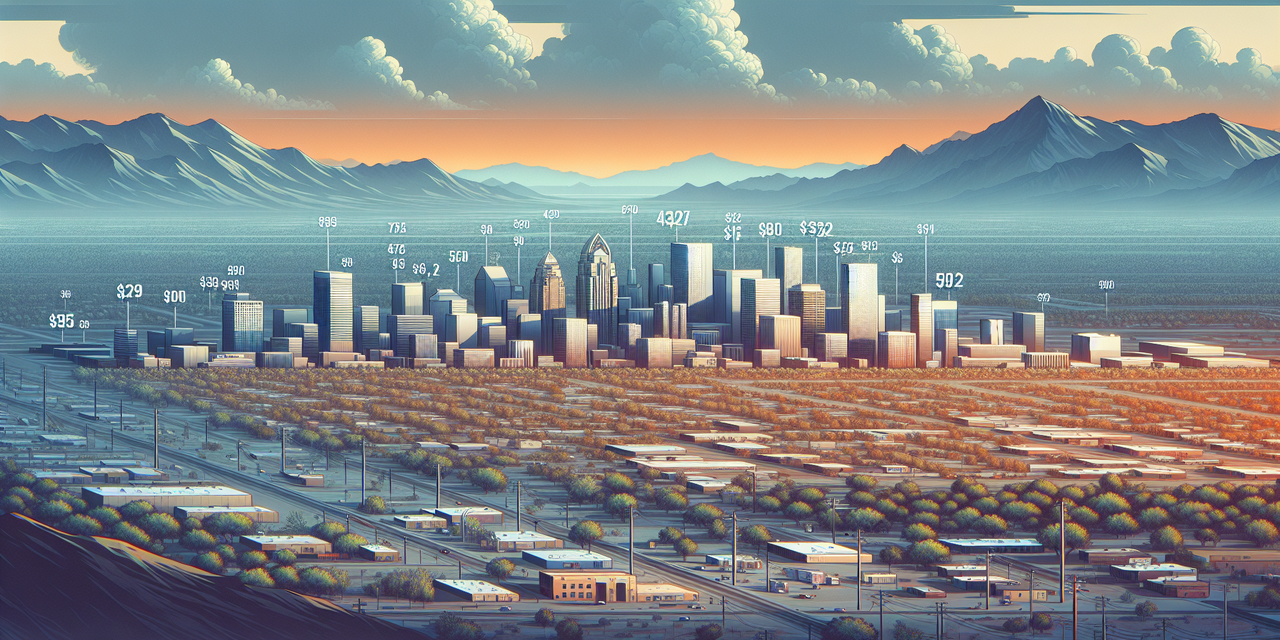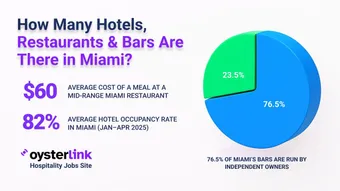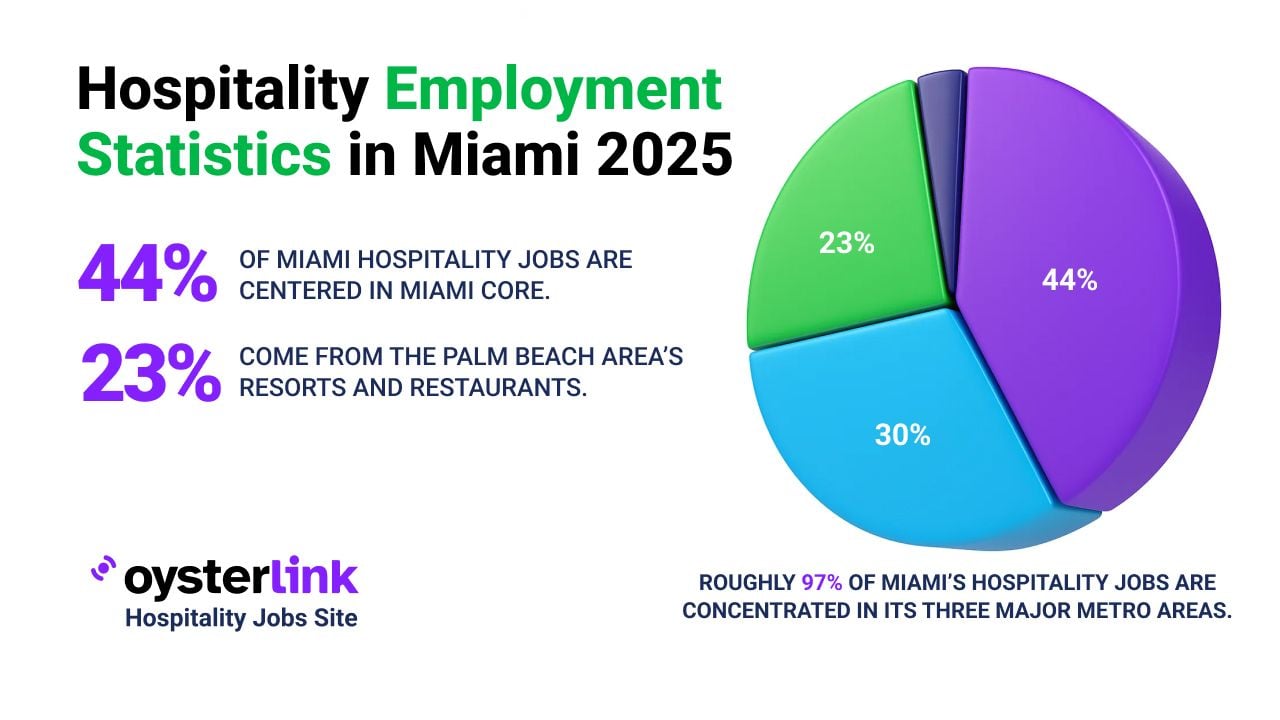Arizona Cost of Living: Quick Takeaways
- Housing Costs: Average rent for a one-bedroom apartment in Arizona climbed to about $1,250 in 2025.
- Transportation Expenses: Public transit fares average $2.00 per ride, with fuel costs around $3.67 per gallon.
- Healthcare Costs: Monthly employer-sponsored health insurance premiums average $129.42, slightly below national levels.
- Income Levels: Median household income in Arizona is projected at $67,000 in 2025.
Arizona offers a diverse living experience, from desert landscapes to metropolitan areas. Understanding the costs of living here is essential for newcomers and residents.
This article provides a detailed breakdown of Arizona's cost of living in 2025, covering housing, transportation, utilities and more.
1. Housing Costs in Arizona
Housing remains a major factor in Arizona's living expenses. Below are the average rents for a one-bedroom apartment from 2010 to 2025:
- 2010: Approximately $800
- 2015: Around $950
- 2020: Approximately $1,100
- 2024: Reached $1,236
- 2025: Projected to be $1,250
These figures show a consistent upward trend in rental prices, reflecting demand and economic growth in the state.
For hospitality employers, understanding regional housing cost trends can be vital in developing competitive compensation packages to attract quality staff. Learn more with our hospitality real estate market trends insight.
2. Homeownership and Real Estate Trends in Arizona
Purchasing a home in Arizona has become more costly over time. Here's the historical data on median home prices:
- 2010: Median home price was around $150,000
- 2015: Increased to about $200,000
- 2020: Reached approximately $300,000
- 2024: Rose to $424,800
- 2025: Projected at $431,473
This reflects Arizona's strong real estate market and ongoing appreciation in property values.
3. Transportation Expenses in Arizona
Arizona offers several transportation options with associated costs:
- Public Transit: One-way fare is about $2.00, while monthly passes cost around $64.00.
- Fuel Costs: Average price per gallon is approximately $3.67.
- Vehicle Maintenance: Annual expenses average $1,200.
Transportation costs can vary depending on location, usage and vehicle type.
Employers in hospitality may want to consider the impact of transportation costs when hiring, especially for frontline staff. Tips on restaurant staff hiring include taking local commuting expenses into account.
4. Utility Costs in Arizona
Typical monthly utility costs for a standard apartment include:
- Electricity: $138.13
- Internet Services: $60.00
- Total Monthly Utilities: $198.13
Utilities may fluctuate based on usage patterns and providers.
5. Grocery and Food Expenses in Arizona
Monthly grocery expenses average about $300 per person. Dining out costs vary:
- Casual Meal: Approximately $12.
- Mid-Range Restaurant Meal: Around $30.
Compared to national averages, food costs in Arizona are roughly 3.9% lower.
Hospitality businesses can benefit from understanding local food cost trends. See our restaurant consumer trends spotlight for more guidance.
6. Healthcare Costs in Arizona
Healthcare spending includes insurance premiums and out-of-pocket expenses:
- Employer-Sponsored Health Insurance: Average monthly premium is about $129.42.
- Silver Plan Health Insurance: Costs roughly $500 per month.
Healthcare expenses are near 2.7% less than national averages.
7. Educational Expenses in Arizona
Education costs in Arizona include options for public, private and higher education:
- Public Schools: No tuition fees.
- Private Schools: Average tuition around $10,000 annually.
- In-State University Tuition: Approximately $11,000 per year.
These figures can vary depending on the institution and program.
8. Entertainment and Leisure in Arizona
Leisure activities and entertainment costs include:
- Movie Ticket: Approximately $12.
- Gym Membership: $40 per month on average.
- Dining Out (Mid-Range Restaurant): $30 per meal.
Annual entertainment expenses typically reach about $2,400.
9. Taxes and Miscellaneous Fees in Arizona
Key tax rates impacting residents include:
- State Income Tax: Ranges from 2.59% to 4.50%.
- Sales Tax: Total rate is approximately 5.6%.
- Property Tax: Average rate is about 0.63% of property value.
These taxes affect both individuals and businesses throughout Arizona.
10. Childcare and Family Expenses in Arizona
Childcare costs represent a significant portion of family budgets:
- Daycare Services: Average monthly cost is $1,000.
- After-School Programs: Approximately $300 per month.
- Extracurricular Activities: Average around $150 monthly.
Families should plan for these ongoing expenses accordingly.
11. Clothing and Personal Care in Arizona
Monthly expenditures for clothing and personal care in Arizona typically are:
- Clothing: $100 per month.
- Personal Care Products and Services: $50 monthly.
These costs vary with individual preferences and lifestyle.
12. Insurance Costs in Arizona
Key insurance costs include:
- Health Insurance Premiums: Average monthly premium for health plans is roughly $500.
- Auto Insurance: Annual average is about $1,201.27.
- Homeowners Insurance: Costs around $800 annually.
- Renters Insurance: Average annual cost is $200.
These insurances are essential for financial and legal protection.
Hospitality business owners may find our insurance for restaurant owners spotlight useful to navigate insurance complexities.
13. Miscellaneous Expenses in Arizona
Additional living costs cover personal care and entertainment:
- Entertainment: Annual spending averages $2,400.
- Personal Care Services: Approximately $600 per year.
- Miscellaneous Goods and Services: Costs about $700 annually.
These expenses depend heavily on individual lifestyle choices.
14. Income and Salaries in Arizona
Median household income in Arizona has steadily increased:
- 2010: $50,000
- 2015: $55,000
- 2020: $60,000
- 2023: $65,000
- 2025: Projected $67,000
Income growth reflects Arizona's economic development.
If you are looking to hire skilled hospitality workers in Arizona, check out our guide on how to hire high performers to get the best candidates efficiently.
15. Comparison with National Averages
Comparing Arizona's cost of living to national averages highlights:
- Overall Cost: Approximately 6.4% higher than the national average.
- Housing: Significantly above national averages by 19.7%.
- Utilities: Slightly higher by 2.7%.
- Food: Lower than national levels by 3.9%.
- Healthcare: About 2.7% below the national average.
- Transportation: Approximately 7% higher than average.
- Goods and Services: Lower by 6.3% when compared to national figures.
These variations help guide financial planning for Arizona residents and newcomers.
Our Methodology for Arizona Cost of Living Figures
We compile data from trusted sources including government statistics, real estate platforms, and financial institutions. Some estimates are made where exact numbers are unavailable, ensuring a comprehensive and current portrayal of Arizona’s living costs.
Arizona Cost of Living: Conclusion
Arizona’s cost of living in 2025 reflects a growing state with rising housing prices and transportation costs, balanced by moderately priced utilities and healthcare.
Income gains have helped residents manage these increases but affordability remains a key consideration for many.
By understanding these detailed costs, current and prospective residents can make informed decisions about living in Arizona.
For hospitality employers aiming to attract top talent in Arizona, exploring our restaurant staff hiring strategies and restaurant manager job description can enhance your recruitment success.



.webp)
.webp)